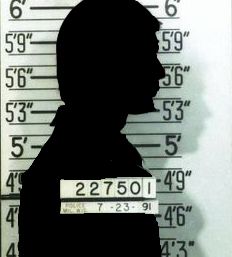Psychopathy
Would Jeffrey Dahmer Have Been a Good World Leader?
A study correlates psychopathic traits with effectiveness in American presidents
Posted September 13, 2012

Certain legendary presidents—Theodore Roosevelt, John F. Kennedy, and Franklin D. Roosevelt among them—had the fearless dominance of psychopaths. Presidents whom history remembers as relatively ineffective—Jimmy Carter and Woodrow Wilson, perhaps—had considerably less of that Right Stuff. So say the authors of a study published in this September’s issue of The Journal of Personality and Social Psychology. The team led by Emory University psychologist Scott Lilienfeld points out that, although psychopathology is a huge risk factor for criminality and violence, certain psychopathic traits are tied to success in politics.
Relying on well-validated psychological and cognitive measurement tools, the researchers asked 121 presidential experts to rate the personality traits and intelligence of the presidents with whom they were most familiar. “Fearless dominance,” a trait commonly observed in psychopaths, proved to correlate with better-rated presidential performance on measures of leadership, persuasiveness, crisis management, and Congressional relations. The performance measures used in this study included a 2009 C-SPAN poll of 62 presidential historians; a 2010 Siena College survey of 238 presidential historians; and a composite measure of presidential greatness derived from the work of UC Davis psychologist Dean Keith Simonton.
The Emory University study points out that Teddy Roosevelt’s, JFK’s, and FDR’s high scores in fearless dominance do not mean that they were psychopaths; nor do the scores suggest that psychopaths in general are good leaders. Fearless dominance is only one of many traits that comprise psychopathy. True psychopaths also exhibit a host of problematic traits like egocentricity, dishonesty, callousness, poor impulse control, and lack of guilt.
That being said, some of those negative traits are evident in the presidential population. Lyndon Johnson, for example, was generally known to play exclusively by his own rules, a characteristic typical of the psychopathic trait called Impulsive Antisociality. It's easy to wonder, then, how Bill Clinton would have scored on risk-taking, given his rash extramarital behavior and his wife’s alleged confirmation that he is "a hard dog to keep on the porch.” But on this question the Emory University study is deliciously silent.


